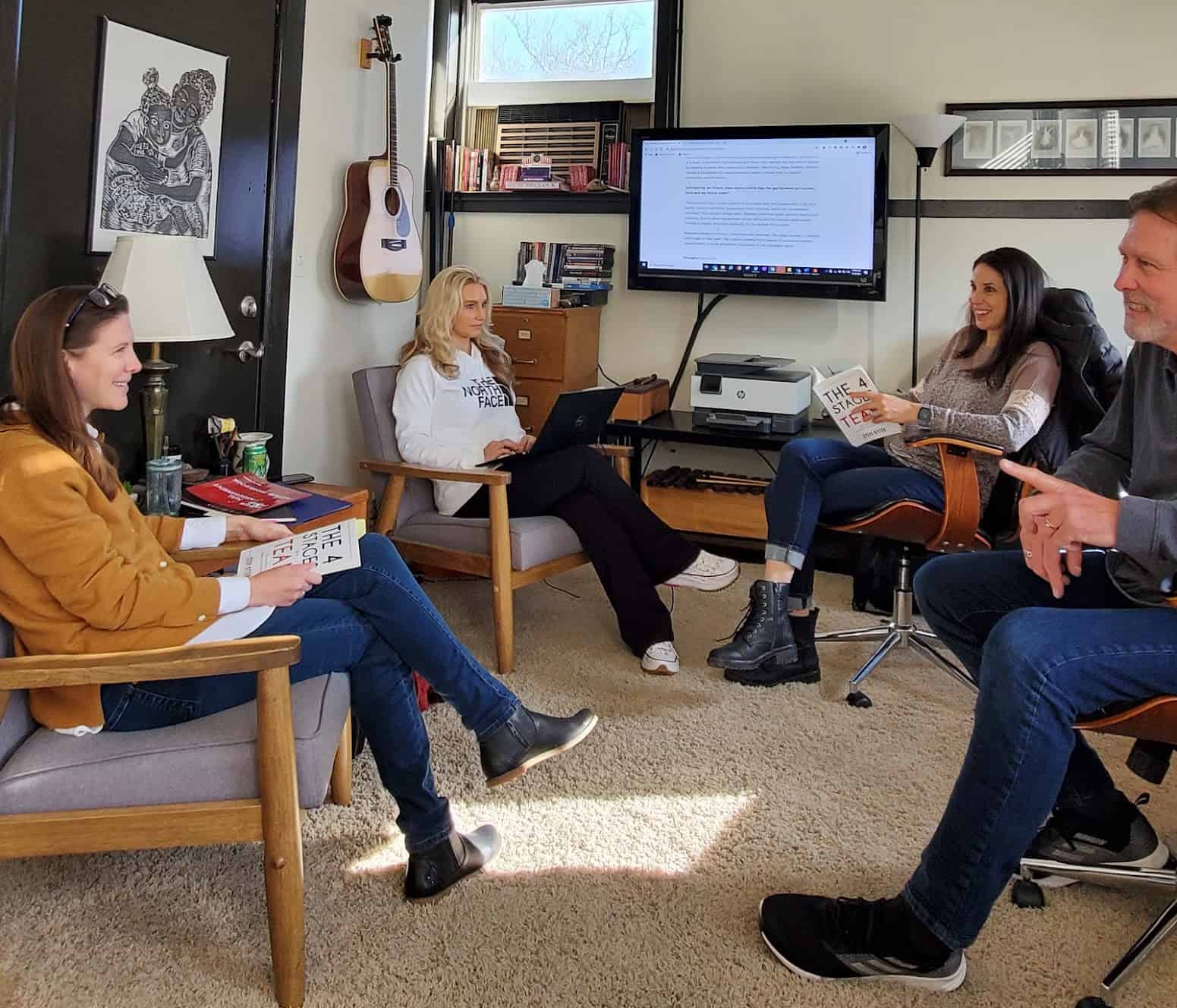Unfortunately, that is the approach that most organizations take to improve teamwork. Each employee stacks four different colored Lego blocks on his or her desk with the color representing their core personality on top. This way, everyone who walks into the office knows the unique lens and language of that teammate. Teamwork, right?

Wrong. Perhaps it’s multi-lingual, but not necessarily interactive. Teams are much more than a collection of distinct personalities. Interactional skills are learned. They aren’t built into our hardwiring. Once trained or modeled, they improve with practice. It is the challenge of navigating conflict that makes us better at conflict-resolution.
As is true in child development theory, struggle leads to growth. If mommy always catches my fall, I never learn how to fall or get back up. If daddy holds the back of the seat while teaching me to ride a bike, I never learn how to balance. You get it. Problems enable problem-solving. Let’s apply this to the development of core team competencies.
Aligning Mission and Culture: The first lesson requires an open dialogue about common goals and a code-of-conduct about how we treat each other in good times and bad. This becomes the foundation for all subsequent competency acquisition.
Appreciating Difference and Embracing Conflict: Once we have a shared destination, inviting diverse perspectives on how to get there should trigger mature disagreement. There are many paths to the top of the mountain. Remaining professional under stress is a learned skill for most of us.
Building Trust and Accountability: Both follow-through and the failure to follow through provide information to the team about trust. If you say you’re going to do it, do it. If you screw up or hit an obstacle, own it and fix it. When everyone does this, the team no longer has to track contribution. Everything just moves forward.
Fostering Respect and Connection: The decision to be kind, understanding, patient, forgiving, and open-minded is a choice. The research suggests a 5:1 ratio of positive to negative behavior as a minimum. On a thriving team, it’s 5:0.
Creating a Platform for Innovation: The recipe for creativity includes discomfort. Operating in an environment where unknowns are common is unnatural. Yet, desensitization eventually makes the struggle of innovation feel normal. It’s okay not to know an answer, and there may be more than one right answer to the question. Once that is accepted, problem-solving can begin.
Managing Change: Teams rarely begin their lifespan with this skill. The ability to navigate loss, recalibrate goals, and refuel after disappointment gets honed by experiencing disruption. Some variation of the traditional stages of grief make us better at moving from denial and anger to acceptance and reinvestment.
Because teams evolve in cycles, these lessons get repeated. When attended to, healthy teams get healthier. When neglected, sick teams get sicker. More importantly, these are not courses you take once and earn a diploma. The continuing education requirement lasts for the lifespan of the team.

